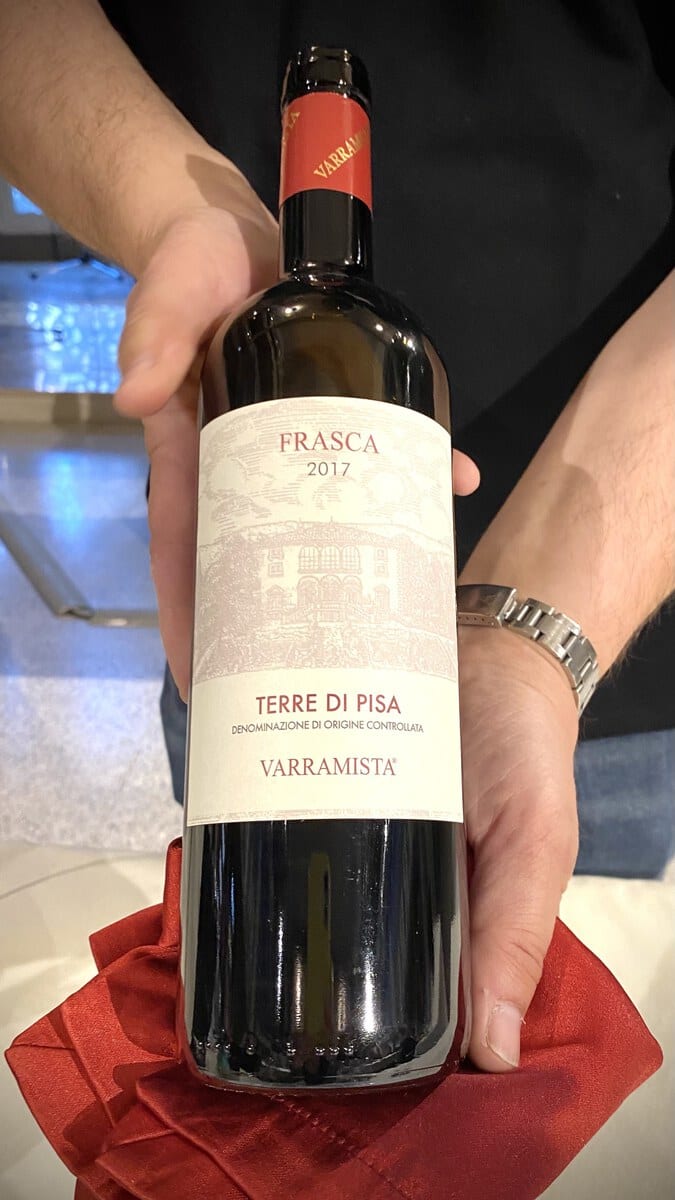Fattoria Verramista "La Frasca" 2017
Blend of Sangiovese / Syrah (Shiraz) / MerlotSmokey & intense. Fig & graphite.
Tasting Notes
La Frasca 2017 from Fattoria Verramista has a ruby colour.
On the nose it’s smokey and rather complex with notes of blueberry marmalade, fig, graphite, leather.
The mouthfeel is full with crunchy but integrated tannins.
On the palate it’s deep and intense with notes of chocolate. The finish is long.
This wine asks for time but will definitely return a great evolution.

|
|
Fattoria Verramista |
|
|
La Frasca |
|
|
Red & Still |
|
|
Italy |
|
|
Tuscany, Pisa |
|
|
Sangiovese, Syrah (Shiraz), Merlot |
|
|
2017 |
|
|
Learn more
Sangiovese
Wine making grape
Sangiovese is a red Italian wine grape variety named after the Latin sanguis Jovis, which means “Jupiter’s blood.” Though it is native to most of central Italy, from Romagna to Lazio, Campania, and Sicily, it is best known outside of Italy as the sole component of Brunello di Montalcino and Rosso di Montalcino, as well as the primary component of the blends Chianti, Carmignano, Vino Nobile di Montepulciano, and Morellino di Scansano, though it can also be used to make varietal wines like Sangiovese di Romagna
Link to here... | Derived from 'Sangiovese' on WikipediaMerlot
Dark blue-colored variety of wine-making grape
Merlot is a dark blue–colored wine grape variety that can be used to produce both blending and varietal wines. Merlot is thought to be a diminutive of merle, the French word for a blackbird, which is most likely a reference to the grape’s color. Merlot is a common grape for blending with the sterner, later-ripening Cabernet Sauvignon, which appears to be higher in tannin, due to its softness and “fleshiness” combined with its earlier ripening.
Link to here... | Derived from 'Merlot' on Wikipedia
